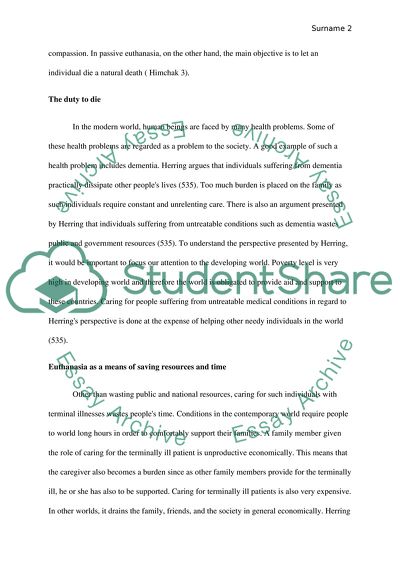Cite this document
(Euthanasia Should be Encouraged Essay Example | Topics and Well Written Essays - 2500 words, n.d.)
Euthanasia Should be Encouraged Essay Example | Topics and Well Written Essays - 2500 words. https://studentshare.org/health-sciences-medicine/1848110-euthanasia-should-be-encouraged
Euthanasia Should be Encouraged Essay Example | Topics and Well Written Essays - 2500 words. https://studentshare.org/health-sciences-medicine/1848110-euthanasia-should-be-encouraged
(Euthanasia Should Be Encouraged Essay Example | Topics and Well Written Essays - 2500 Words)
Euthanasia Should Be Encouraged Essay Example | Topics and Well Written Essays - 2500 Words. https://studentshare.org/health-sciences-medicine/1848110-euthanasia-should-be-encouraged.
Euthanasia Should Be Encouraged Essay Example | Topics and Well Written Essays - 2500 Words. https://studentshare.org/health-sciences-medicine/1848110-euthanasia-should-be-encouraged.
“Euthanasia Should Be Encouraged Essay Example | Topics and Well Written Essays - 2500 Words”. https://studentshare.org/health-sciences-medicine/1848110-euthanasia-should-be-encouraged.


